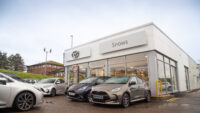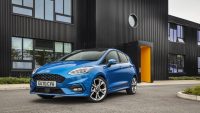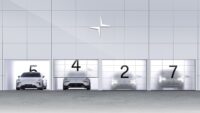Cox Automotive is forecasting that 7.64m used car transactions will take place this year, with the sector remaining a ‘stabilising force amid wider industry volatility’.
The automotive giant says that sales are likely to remain at the same level as in 2024, despite being 3.6% above the long-term average from 2001 to 2019.
Analysts say the market is showing ‘signs of resilience’ – especially for vehicles aged three to five years – flying in the face of ongoing supply challenges, which are a mostly hangover from pandemic-era production slowdowns.
It is expected that those challenges will start easing in the second half of the year, making it easier for car dealers to satisfy robust customer demand.
Elsewhere, trade values have remained stable with prices returning to more typical seasonal patterns, particularly for petrol and diesel models.
Looking at vehicles aged between 24 and 72 months old, values have remained consistent over the previous 18 months, especially when it comes to petrol cars.
Taking April as an example, petrol cars in that age bracket retained an average of 60% of their original cost new (OCN), the same as in October 2023.
Cox says that the figure represents a marked difference from the 6% dip that petrol vehicles saw between October 2022 and October 2023.
Reflecting on the latest analysis, Philip Nothard, insight director at Cox Automotive, said: ‘The used market continues to provide a vital anchor for the automotive sector.
‘As trade values stabilise and consumer appetite for affordable vehicles remains strong, retailers have a clear opportunity to set robust retail prices, where market conditions support them, and maximise their margins.
‘Strategic stock selection and strong retail pricing will be crucial to sustaining profitability in a supply-constrained environment.’
Away from cars, the commercial vehicle sector also remains robust. Diesel continues to dominate, but electric vans are gaining ground, with a 62.6% increase in arrivals at Manheim sites in Q1 2025.
However, infrastructure concerns and cost sensitivity continue to limit buyer confidence, with only four in ten electric vans selling first time.

































